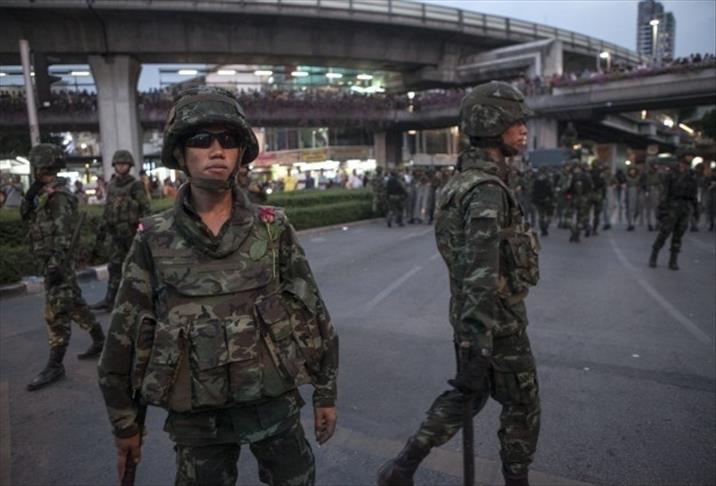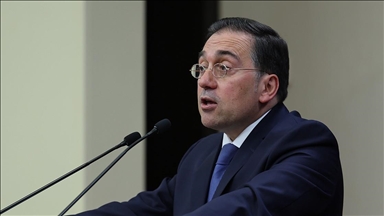
BANGKOK
The Thai military issued an ominous warning to its opponents Monday, a spokesman telling reporters that the junta would remain in power until its objectives are met, particularly if opposition continues.
Speaking to the Bangkok Post, General Sansern Kaewkamnerd said that if all progresses as planned, there would be no reason for the junta to remain.
“But if there attempts to instigate disorder and prevent or obstruct the work of government in the way that prevents national reform from progressing … or if there are actions that lead to turmoil and danger to officials and people, the government will have no other choices than to stand beside the people,” he added.
The military overthrew the elected government of Yingluck Shinawatra in a May 22 coup, and appointed a government and national assembly.
Initially, junta chief-cum-prime minister General Prayuth Chan-ocha promised elections “within 15 months,” but at the end of 2014 he reneged and shifted the date to 2016.
The “military cannot abandon people and its duties because that is what all soldiers have been taught,” stated General Kaewkamnerd.
Thailand has been under military control for around 50 years since the end of World War II. An edict of military academy training is that the army is the ultimate savior of the nation.
Following the May 22 coup, the junta clamped down on civil liberties, detaining hundreds of politicians, activists, academics and journalists.
All criticism of junta orders was banned, and violators sent to military courts.
On April 1, martial law - imposed two days before the coup - was lifted, but replaced by an order giving absolute power to Chan-ocha, without any oversight from judicial, executive or legislative powers.
The enactment of this order - under article 44 of the interim constitution - has been widely criticized by local civil society organizations and western governments.
Junta leaders, however, have tried to reassure the diplomatic community and local critics, saying they will use their powers “constructively."
Officials from the junta and foreign ministry have said they plan to brief foreign diplomats on Tuesday to dispel what deputy-prime minister Vishnu Krua-ngam called “possible misunderstandings.”
Anadolu Agency website contains only a portion of the news stories offered to subscribers in the AA News Broadcasting System (HAS), and in summarized form. Please contact us for subscription options.


